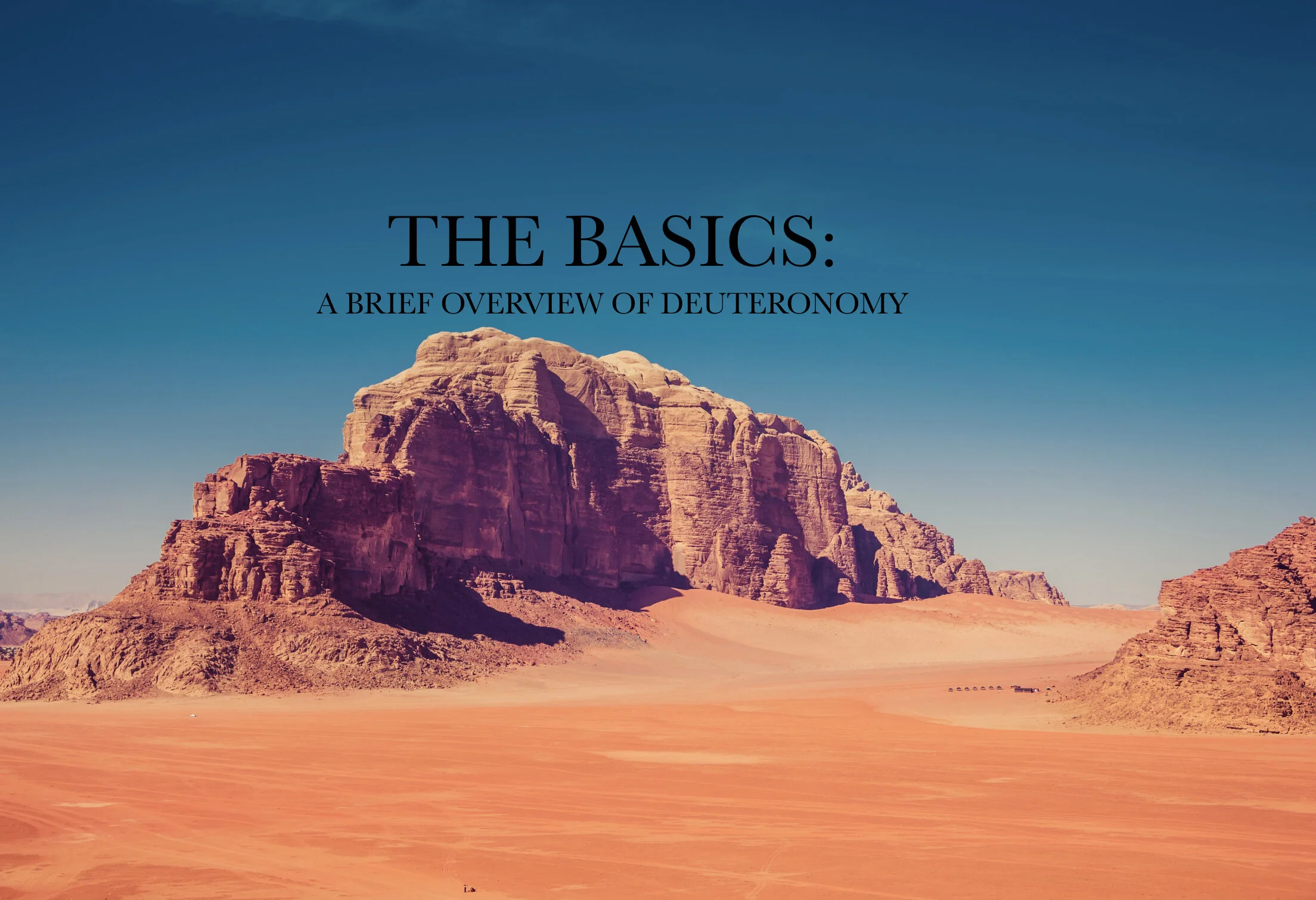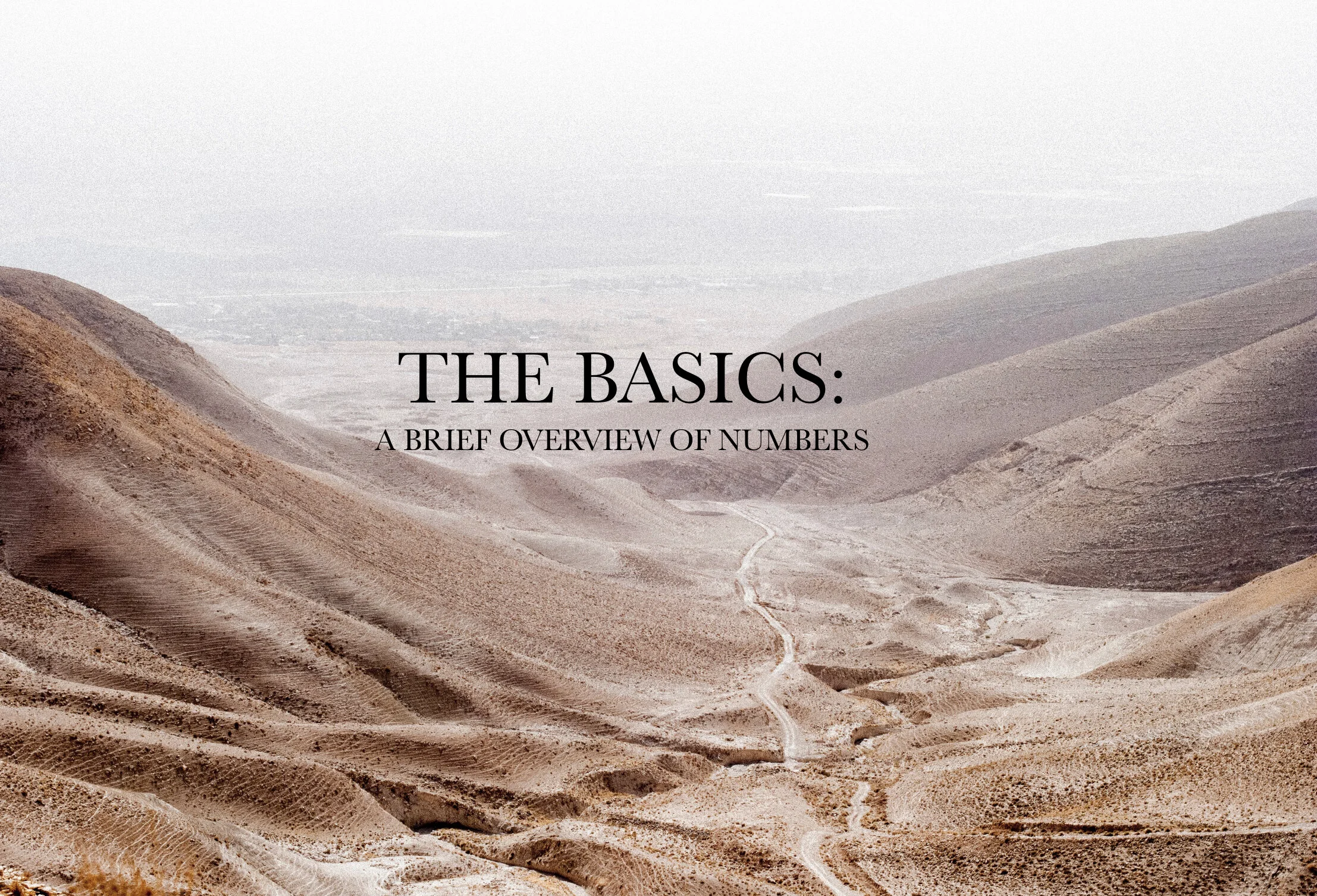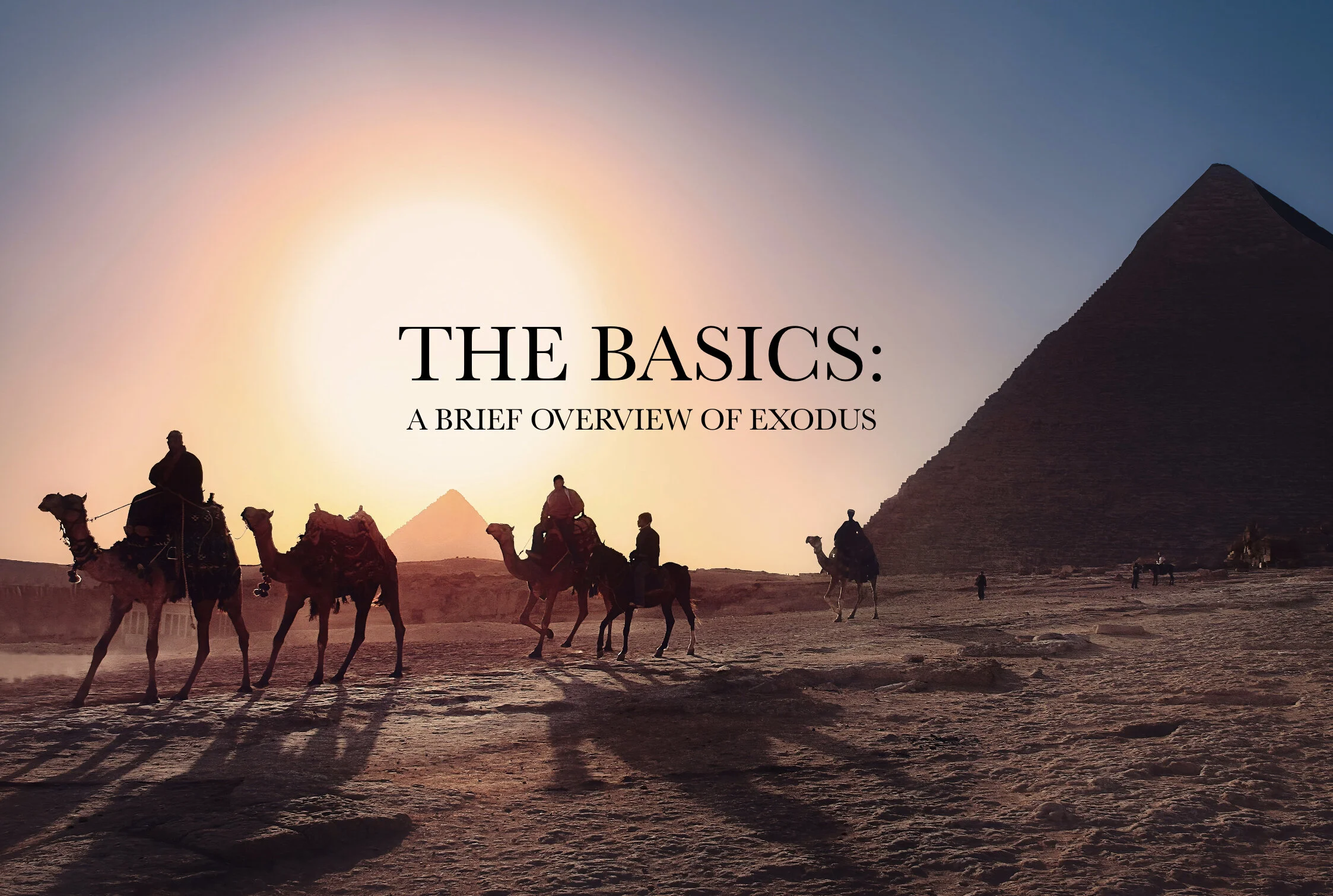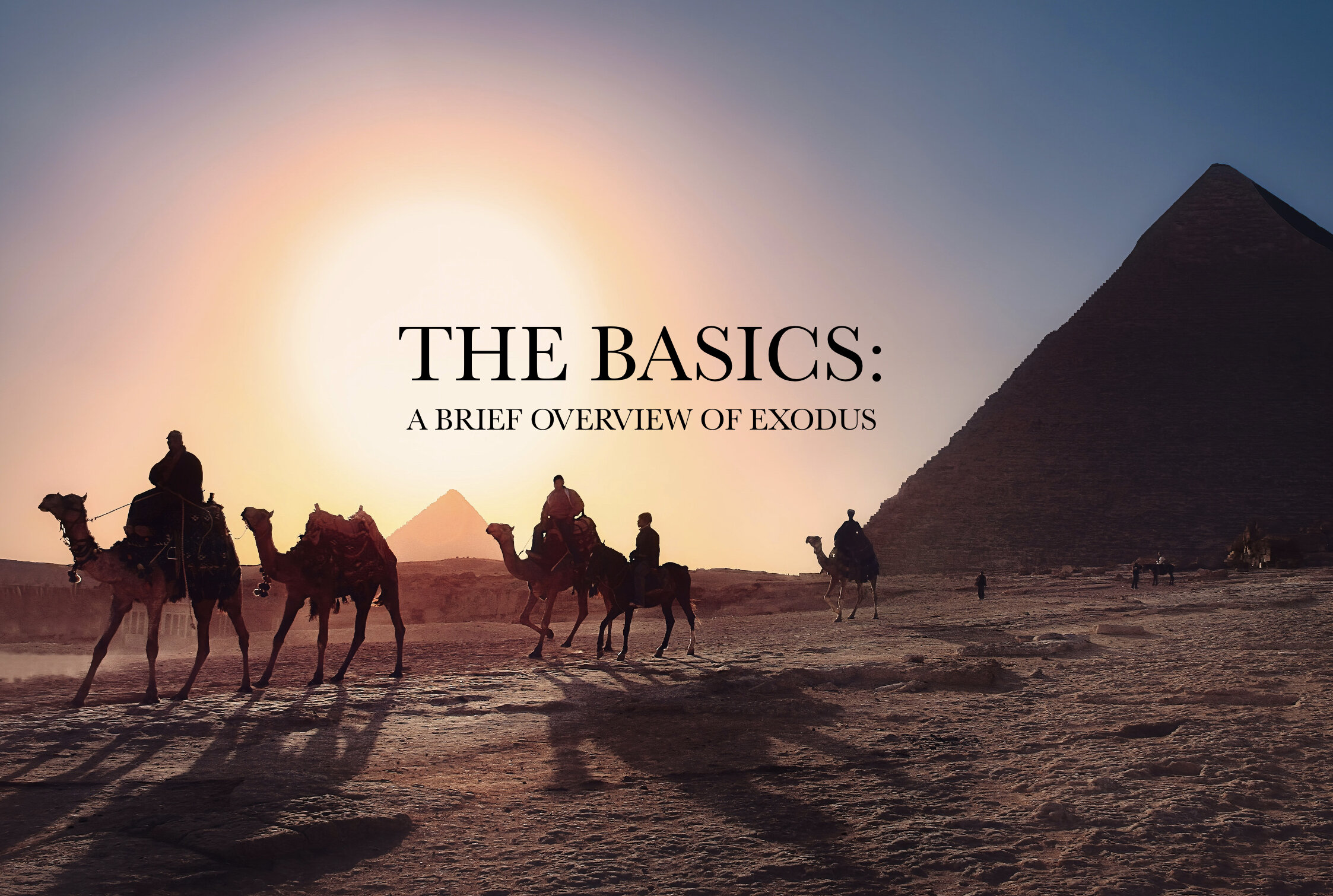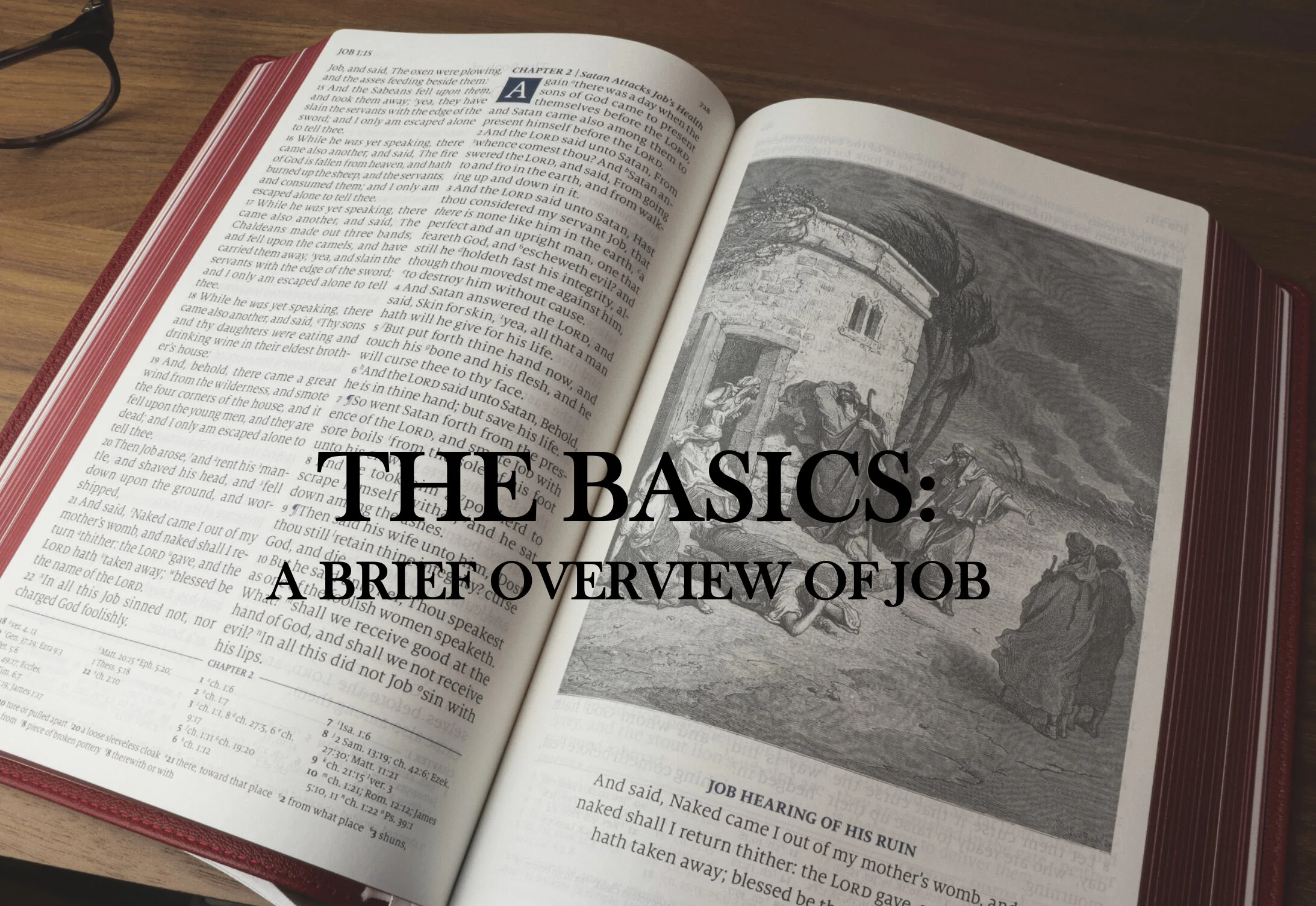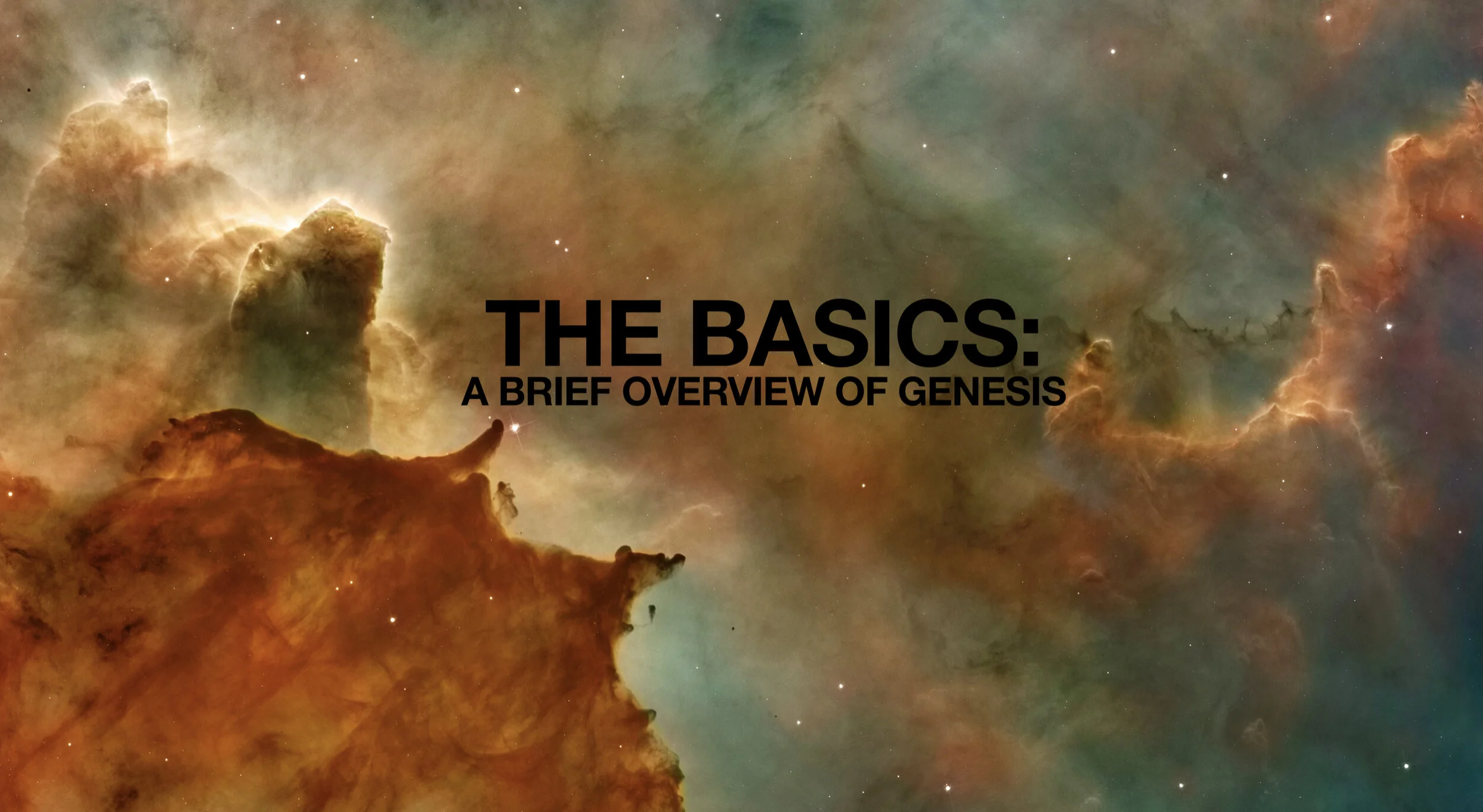A Biblical Attitude Towards Sin
Matthew 18 gives the guideline on how to confront a born-again believer who is going against the Word of God, it also discusses the attitude that we need to have when confronting these individuals.
Now that we have seen the outline of how to confront a fellow believer who is actively going against the Word of God. I want to take a moment to discuss the attitude that you should have when confronting a person. Often times when we are in a disagreement with someone, tempers tend to get out of hand and the tongue takes control. In James we see that the tongue can be a vicious thing. I am sure there is not one person reading this who hasn’t said something that they later regretted once they saw how it hurt someone else. “5 So also the tongue is a small part of the body, and yet it boasts of great things. See how great a forest is set aflame by such a small fire! 6 And the tongue is a fire, the very world of unrighteousness; the tongue is set among our body’s parts as that which defiles the whole body and sets on fire the course of our life, and is set on fire by hell. ”James 3:5-6.
Too often we let our emotions control us and do not keep our tongue under control, this is not the attitude that a born-again believer should have. We need to keep our emotions in check and remember that, “A soft answer turns away wrath, but a harsh word stirs up anger.” Proverbs 15:1. While we are called to restore one another in gentleness, Galatians has a warning in it as well. “Brothers and sisters, even if a person is caught in any wrongdoing, you who are spiritual are to restore such a person in a spirit of gentleness; each one looking to yourself, so that you are not tempted as well.” Galatians 6:1. When we confront another regarding their sin, we need to keep ourselves in check so that we do not sin as well. This means that we are to keep our emotions and tongue in check to ensure we do not sin against the one we are confronting.
Now that we understand the attitude we should have and how our words can have a lasting impact; we need to discuss what our responsibility is to the person who is actively going against the Word of God. When it comes to confronting a fellow believer about their sin, we need to be quick to help them and forgive them; for we ourselves have been forgiven by God. The ground at the cross is level for all of us. This does not mean to keep fellowship with them if they keep sinning (go back and read last weeks post regarding this). However we need to keep Jesus Christ’s commandment regarding this issue, we follow His guidance above all.
“21 Then Peter came to Jesus and asked, “Lord, how many times shall I forgive my brother or sister who sins against me? Up to seven times?” 22 Jesus answered, “I tell you, not seven times, but seventy-seven times. 23 “Therefore, the kingdom of heaven is like a king who wanted to settle accounts with his servants. 24 As he began the settlement, a man who owed him ten thousand bags of gold was brought to him. 25 Since he was not able to pay, the master ordered that he and his wife and his children and all that he had be sold to repay the debt. 26 “At this the servant fell on his knees before him. ‘Be patient with me,’ he begged, ‘and I will pay back everything.’ 27 The servant’s master took pity on him, canceled the debt and let him go. 28 “But when that servant went out, he found one of his fellow servants who owed him a hundred silver coins. He grabbed him and began to choke him. ‘Pay back what you owe me!’ he demanded. 29 “His fellow servant fell to his knees and begged him, ‘Be patient with me, and I will pay it back.’ 30 “But he refused. Instead, he went off and had the man thrown into prison until he could pay the debt. 31 When the other servants saw what had happened, they were outraged and went and told their master everything that had happened. 32 “Then the master called the servant in. ‘You wicked servant,’ he said, ‘I canceled all that debt of yours because you begged me to. 33 Shouldn’t you have had mercy on your fellow servant just as I had on you?’ 34 In anger his master handed him over to the jailers to be tortured, until he should pay back all he owed. 35 “This is how my heavenly Father will treat each of you unless you forgive your brother or sister from your heart.”
Matthew 18:21-35
We see here that Peter was wondering how often we are called to forgive, instead of getting a response that we only need to forgive those who wrong us a certain number of times, Jesus tells him that we are to forgive seventy-seven times. This is interesting because the meaning behind the number seven is “God”. We are called to forgive as many times as God forgives us.
When we are faced with a disagreement we need to forgive the individual. If we don’t we can’t show God’s love and forgiveness to others. If we cannot forgive others, then we can’t understand how a perfect God could forgive us, “15 but if you do not forgive others their trespasses, neither will your Father forgive your trespasses.” Matthew 6:15 or again in Mark 11:25, “25 And when you stand praying, if you hold anything against anyone, forgive them, so that your Father in heaven may forgive you your sins.””
Christians will sin, this is a true statement until we are given our new bodies by Jesus Christ in the Rapture, thus we need to know and understand what it means to confront sin in fellow believers both Biblically and lovingly. Always remembering that Jesus Christ forgave us of our sin. As born-again believers, we need to remember that we are ambassadors here, our attitude reflects the One that we serve; we are representing Christ to this world but also encouraging our brothers and sisters in the faith to continue pursuing God and being Holy because He is Holy.
Seek the truth and encourage one another,
Alex
The Basics: A Brief Overview of Deuteronomy
Come see the importance of the last book of the Pentateuch and Moses’ final words!
The Basics course is designed to help brothers and sisters in Christ, who have a desire for a brief study over each of the books of the Bible. While being more than just a timeline, it is designed to give a person a more realistic overview of the entire Bible. As well as pointing out different highlights along the way. Imagine riding in a car and seeing exit signs for a town. Each sign gives a brief glimpse of what is inside, while if you wanted to thoroughly investigate the town you would have to take the exit. This series is a collected work of the books of the Bible while continuing to drive past each of the exits. I would encourage you to take any exit and allow the Lord God to direct your path to where He would guide.
The Bible is written into 66 different books. Each one unique on its own but designed to be with its other collected works.
Cautionary Note: This work is not to argue for the authenticity of the Bible nor is it to argue over the mechanics of how God used man to write His Words. This is designed as an overview for someone to review the book in passing. Nevertheless, we here at Mill House Ministries believe that the Bible is without error and was written by God, through His divine attributes, through man.
These overviews are sequenced in the below fashion. Each overview is designed to flow in unison.
1. Introduction
2. Who wrote it
3. When did they write it
4. Why did they write it
5. Key topics
6. Key sections
7. Books that interact with each other
8. Analysis of the Book
As previously stated, if you find yourself drawn to one of these books, please take the time and see what God is wanting to show you in that book.
BASICS COURSE: Deuteronomy (Pentateuch)
INTRODUCTION:
The book called Deuteronomy in the Bible was written by the Prophet Moses. You could say he is the oldest, most well known, and well written historian to ever be published. Pentateuch is the collected work of the first five books of the Bible. The term Pentateuch literally means “Five Books.” Jewish scholars identify this book as one of the five books of “The Law.” Deuteronomy is a brief history of roughly two months of time, Moses is soon to pass away and he is establishing the final foundational aspects to the newly found nation of Israel. Once slaves being rescued from Egypt, they were now to embark on a conquest for a foreign land that was promised to them by God Almighty. Deuteronomy is the final chapter of the beginning of Israel.
WHO WROTE IT:
Moses is the son of Amram and Jochebed, he lived as an adopted son to Egyptian royalty. After murdering an Egyptian, he fled to the wilderness. There God called to him in a burning bush. He was than commissioned to lead the Jewish nation out of Egypt and into the promised land that God had ordained. He would lead them until his death, but unfortunately never into the promise land. He talked with God like a friend. Exodus 33:11a “So the LORD used to speak to Moses face to face, just as a man speaks to his friend.” Moses is considered to be one of the greatest people in the Bible, and is even mentioned in Hebrews chapter 11 as one of the greats in the faith.
WHEN DID THEY WRITE IT:
Moses knows he is going to pass away and is wanting to make sure everything is in order for his coming death. Moses being the author of the book is closer towards the end of his life. According to famed author and Bible theologian Don Stewart, Moses lived during the Late Bronze Age around 1550 to 1200 B.C. We know that Deuteronomy was written during this time frame.
WHY DID THEY WRITE IT:
This book was written by Moses for three reasons. First, to exemplify the relationship between man and God as being broken. This is done by the emphasis of religious practices and symbolic declarations for the need of a perfect sacrifice to one day come, we know that sacrifice to be identified by John the Baptist as the Lamb of God Jesus Christ, John 1:36 “and he looked at Jesus as He walked, and said, “Behold, the Lamb of God!” The second reason why Deuteronomy was written is based on the final foundational text describing Israel. This book helps solidify our understanding of the Law and the ordinances given to Israel. The final reason is that Deuteronomy prophecies the coming challenges of Israel.
KEY TOPICS:
This book discusses the Jewish tribes, the Tabernacle, the Tribes of Israel, sin, repentance, God’s Holiness, God, man, God’s Judgement, man’s wrath, covenant, Promise Land, Israel’s coming failure, Israel’s coming rescue.
KEY SECTIONS:
Deuteronomy is easily separated into four categories, chapters 1-4 are a review of the journey. Chapters 5-26 the Law is reiterated with importance. Chapters 27-30, Moses prophecies about the coming judgment of Israel based on their actions of disobedience. Chapters 31-34 has been considered the Requiem of Moses.
BOOKS THAT INTERACT WITH EACH OTHER:
It is no small aspect to say that this book is leaned on by virtually all other books in the the Bible, but in particular the books of the Old Testament, the four gospels, and Revelation. Moses is preparing future generations who would read the book with a detailed warning and encouragement of what is going to happen to their nation. Jesus Christ quotes Deuteronomy when refuting the Devil. Deuteronomy, being the final of the Pentateuch, leans heavily on the first four; drawing from some of the events, articulating, and referencing what the other books had already established.
ANALYSIS OF THE BOOK:
For a Christian studying the personhood of Jesus Christ, one must fully and unequivocally turn to the book of Deuteronomy. While the Gospels might bring into focus the Man, Deuteronomy is the very mission of why Jesus had to come in the manner which He did. The relationship that was seen in the Gospels is brought to fruition in the book of Deuteronomy. If someone is going to study the Old Testament, Deuteronomy can help you understand the thought process of many of the characters and motivations. Careful students of the Bible should not pass up the chance to study Deuteronomy because of the remarkable reflection of man found in the book. Philosophical speaking, Deuteronomy helps dictate the need for a savior for man and our inability to be what we need in our own lives. Finally, Matthew Henry states in his Deuteronomy commentary “This book of Deuteronomy begins with a brief rehearsal of the most remarkable events that had befallen the Israelites since they came from Mount Sinai.” Deuteronomy should not be forgotten as it is the final aspect of the beginning of Israel, as well as the establishing relationship with God. If someone asks why is Israel God’s chosen people, all you would need to do is go to Deuteronomy. This book helps, as other books in the Bible, with refuting the sinister ploy of “Replacement Theology.” Ultimately, Deuteronomy is a book designed to help establish the reader to a better understanding of how God used the Jewish nation to exemplify human incapacity to be perfect, but the incredible story of salvation being prepared for the world through a small nation called Israel.
Hold until relieved, Our Blessed Hope is coming
JL
RE-POST FRIDAY!
We continue our look into Jesus Christ’s appearance before His humble arrival!
The third look back into Jesus Christ’s appearance before His humble arrival. Read it HERE!
A Biblical Departure
How should a Christian respond when there is a member of the body of Christ who is actively going against the Word of God? Come and find out!
Last week we took a look at how a Christian should handle sin in other member(s) of the body of Christ. We saw that at first the situation should be handled between the individuals involved, then if needed bring in two to three witnesses, if there is still no resolution then to bring it before the church. The church does not necessarily mean the pastor or elders, instead it could be the members of the body of Christ who the situation involves. However, in today’s conflict filled world, how should a Christian handle a “professing” believer who is going against the Word of God? The answer can be found in 2 Thessalonians 3.
“6 Now we command you, brothers and sisters, in the name of our Lord Jesus Christ, that you keep away from every brother or sister who leads a disorderly life and not one in accordance with the tradition which you received from us. 7 For you yourselves know how you ought to follow our example, because we did not act in an undisciplined way among you,”
2 Thessalonians 3:6-7
One thing that is important to mention is the misunderstanding behind the word “tradition” in 2 Thessalonians 3:6. In today’s society, the word tradition holds the meaning of something that is passed down, most commonly viewed as a family or holiday tradition. Something that is done because that is how it is always done. This is not what is meant in this passage. Someone who is not acting in accordance with “tradition” does not mean church tradition. Instead this means someone who is not acting in accordance with the Word of God. The apostles were preaching the Word of God and showing how we are all called to act in accordance with the Scriptures. However, there were some who were professing to belong to the body of Christ, but actively going against the Scriptures. So how are true born-again believers to respond to one such a person?
The answer is simple. Despite our feelings on the matter, if there is one who is “professing” to be a born-again believer but their walk is going against the Word of God, then we must not associate with them. In fact, this is something that we are commanded to do. This may seem like a harsh response, but let us look at the reasoning for this. First, this command is directed towards those who are willfully walking against the Word, they are those who know the Word but actively go against it. They profess to belong to Christ but are still actively a part of the world. These people unfortunately hinder the work of God. This does not mean that God can’t still use them, after all “28 And we know that in all things God works for the good of those who love him, who have been called according to his purpose.” Romans 8:28.
The way these people hinder the work of God is through the eyes of man. For example, when I was in college and had just become saved I was roommates with another Christian girl and two non-believers. The other Christian was constantly going out to parties and inviting men over to our room, while doing these things she would also be “preaching” the gospel message to our other roommates. I was approached by one of our roommates who stated “I act more Christian than her, why do I need Jesus!” There is another example from a man named Anton LaVey, he would work in the burlesque shows and see the same men in the pews on Sunday. This man became known as the father of Satanism.
This is how those who know the word of God but do not follow it, hinder the work of God. They do not show God’s grace and redeeming power to the world, they show the exact opposite. This is why the true born-again believers need to refrain from associating with them. Have you ever heard the saying “The company you keep is a reflection of yourself”? This saying is very true; when a born-again Christian is around those who behave in a way such as the examples given, it makes their statements about God have less impact. Yet, this must be acted upon with careful prayer and vigilance, because God has called us to be in this world, John 17:15 “I do not ask You to take them out of the world, but to keep them from the evil one.” Paul later on expounds on Jesus’ teachings by detailing that we cannot separate ourselves completely from sinners. First because we still are sinners, second because we would not be useful Gospel messengers, and finally we would have to leave this world in order to separate ourselves from sin. Paul states in 1 Corinthians 5:9-13 “9 I wrote you in my letter not to associate with immoral people; 10 I did not at all mean with the immoral people of this world, or with the covetous and swindlers, or with idolaters, for then you would have to go out of the world. 11 But actually, I wrote to you not to associate with any so-called brother if he is an immoral person, or covetous, or an idolater, or a reviler, or a drunkard, or a swindler--not even to eat with such a one. 12 For what have I to do with judging outsiders? Do you not judge those who are within the church? 13 But those who are outside, God judges. REMOVE THE WICKED MAN FROM AMONG YOURSELVES.” We must understand that who we are around does not influence us, but rather we influence them towards Christ. For those who claim to be Christian and are not acting in such a manner, treat them as non believers. Witness and pray for them, but do not allow them to engage as we would other believers in the communion of the Church.
In light of the examples given, it becomes clearer to see why we must avoid those who profess to be Christians but are actively walking against what the Word says. We want our walk to show who sent us, I am not saying that it is bad to have a past. We all have doing things that have fallen short of the glory of God, the difference between someone with a past and the examples given is that these people are actively working against the Word of God. They have no repentance. They fail to see the true impact that sin has on their lives. Someone who has a past of going against God’s Word, one day sees the impact of their actions and know how it disconnects them from God. They no longer enjoy being in sin.
The second reason we are to have no association with those who are actively going against the Word of God is so that they will come to see the error of their ways. We are to distance ourselves always in hope that they will return. There are times in a person’s life that when they have no one else to help them; they cry out to the only One who truly can, God. 1 Corinthians 5 gives us an example of how to act around those who are actively going against the Word of God.
“It is actually reported that there is sexual immorality among you, and of a kind that is not tolerated even among pagans, for a man has his father's wife. 2 And you are arrogant! Ought you not rather to mourn? Let him who has done this be removed from among you. 3 For though absent in body, I am present in spirit; and as if present, I have already pronounced judgment on the one who did such a thing. 4 When you are assembled in the name of the Lord Jesus and my spirit is present, with the power of our Lord Jesus, 5 you are to deliver this man to Satan for the destruction of the flesh, so that his spirit may be saved in the day of the Lord.”
1 Corinthians 5:1-5
In the church at Corinth, there was a man who had taken his father’s wife as his. This was something that was forbidden and was not even done among a group that was often given into sexual immorality. The church allowed this to take place and to continue instead of branding it as wrong. Paul is exhorting them to remove this man from their congregation and to “to deliver this man to Satan for the destruction of the flesh” 1 Corinthians 5:5. To give this man over to Satan was to allow him to see how difficult life could be when seeped in sin. This was done with the hope that he would repent and return to God. This is the attitude that we should have with those who refuse to repent. Now eventually, this man did repent and the church at Corinth failed to forgive him; for which they were later admonished for. Next week we will discuss what our attitude should be regarding when we are confronted with the sin in our lives and the attitude we should have when someone who was once separated from the body of Christ by sin, but has now repented.
Seek the truth and encourage one another,
Alex
The Basics: A Brief Overview of Numbers
Come see one of the Christian’s greatest lessons for today found in the Old Testament!
The Basics course is designed to help brothers and sisters in Christ, who have a desire for a brief study over each of the books of the Bible. While being more than just a timeline, it is designed to give a person a more realistic overview of the entire Bible. As well as pointing out different highlights along the way. Imagine riding in a car and seeing exit signs for a town. Each sign gives a brief glimpse of what is inside, while if you wanted to thoroughly investigate the town you would have to take the exit. This series is a collected work of the books of the Bible while continuing to drive past each of the exits. I would encourage you to take any exit and allow the Lord God to direct your path to where He would guide.
The Bible is written into 66 different books. Each one unique on its own but designed to be with its other collected works.
Cautionary Note: This work is not to argue for the authenticity of the Bible nor is it to argue over the mechanics of how God used man to write His Words. This is designed as an overview for someone to review the book in passing. Nevertheless, we here at Mill House Ministries believe that the Bible is without error and was written by God, through His divine attributes, through man.
These overviews are sequenced in the below fashion. Each overview is designed to flow in unison.
1. Introduction
2. Who wrote it
3. When did they write it
4. Key topics
5. Key sections
6. Books that interact with each other
7. Analysis of the Book
As previously stated, if you find yourself drawn to one of these books, please take the time and see what God is wanting to show you in that book.
BASICS COURSE: Numbers (Pentateuch)
INTRODUCTION:
The book called Numbers in the Bible was written by the Prophet Moses. You could say he is the oldest, most well known, and well written historian to ever be published. Pentateuch is the collected work of the first five books of the Bible. The term Pentateuch literally means “Five Books.” Jewish scholars identify this book as one of the five books of “The Law.” The name Numbers comes from the censuses recorded in chapter 1 and 26. This book is all about the consequences of faith or the lack there of. Many people will skip this book and assume that it is only historical in nature, however they couldn’t be further from the truth. It is here that the Christian is taught a valuable lesson of wondering in sin, but also the symbolism of a coming savior.
WHO WROTE IT:
Moses is the son of Amram and Jochebed, he lived as an adopted son to Egyptian royalty. After murdering an Egyptian, he fled to the wilderness. There God called to him in a burning bush. He was than commissioned to lead the Jewish nation out of Egypt and into the promised land that God had ordained. He would lead them until his death, but unfortunately never into the promise land. He talked with God like a friend. Exodus 33:11a “So the LORD used to speak to Moses face to face, just as a man speaks to his friend.” Moses is considered to be one of the greatest people in the Bible, and is even mentioned in Hebrews chapter 11 as one of the greats in the faith.
WHEN DID THEY WRITE IT:
Moses lived and was a witness during the events of Numbers. Through the inspiration of the Word of God, he was called to write down the events which transpired. According to famed author and Bible theologian Don Stewart, Moses lived during the Late Bronze Age around 1550 to 1200 B.C. We know that Numbers was written during this time frame.
KEY TOPICS:
This book discusses the Jewish tribes, the Tabernacle, the Promised Land, war, God’s judgement, faith, Nephilim, rebellion, and the need for a savior.
KEY SECTIONS:
This book can be outlined in the following; chapters 1-8 is Israel being prepared to march into the wilderness. Chapters 9-10 is a description of the events as they marched to their destination. Chapters 11-12 are the events of Sinai to Kadesh, chapters 13-14 describes the failure of Israel at Kadesh. Chapters 15-25 describes Israel and their poor attitude towards the Lord and the 40 years of wondering in the wilderness. Finally, chapters 26-36 shows a new generation preparing to enter the Promised Land.
BOOKS THAT INTERACT WITH EACH OTHER:
Surprisingly, the book of Numbers is hinted at throughout the Old and New Testament. How the young Jewish nation acted in Numbers would reflect throughout the entire Old Testament, while the book of Numbers is referenced specifically in the book of Hebrews in the New Testament.
ANALYSIS OF THE BOOK:
Numbers can be argued as one of the most unused books by Christians today. There are many who miss the amazing lessons for us living today that can be found in the book. Here we see a group of saved individuals, who do not have the faith that God will provide for them, so they are stuck wondering the Sin Desert. They were only supposed to be in the desert for a little period of time, and than make it to the Promise Land of Milk and Honey. However, their lack of faith cost them greatly, were they still saved? Yes, Moses being chief of them could not enter the Promise Land, yet he was a friend of God. Like the Hebrews than, many Christians today are saved and stuck in the Sin Desert. Instead of trusting Jesus Christ to take us across the Jordan and allowing Him to take the sin out of our life, we grumble, complain, and lack the faith that Christ can do what He has promised to do. The result is years of being a spiritual baby Christian, with no firm grounding in what the Lord has promised us. It is safe to say that a majority of saved believers are stuck in the desert, wandering around, sinning and confessing, sinning and confessing until they finally pass away. I was one of those people. It took over twenty years to learn that if only I would allow God to take full control of my life, and be more than just my salvation; He was ready to transform my life into what He had planned. Numbers is a great book in symbolizing this spiritual break through that so many of us need to recognize and accept. Numbers helps the modern day believer realize that Christ is still needed to continue to cleanse ourselves from our sinful desires to this day. Numbers is an outline for the Christian to understand the “sanctified life.” For more on this I would encourage you to read, V. Raymond Edman’s book They Found the Secret. This book helps highlight what Numbers is explaining. V. Raymond Edman states this transformation, “Said the Savior: ‘I am come that they might have life, and that they might have it more abundantly.’ We find newness of life in Christ by receiving Him as our own Savior from the penalty of sin. Abundance of that life we find by surrendering self and drawing on the unfailing resources of the Almighty. There is life and then there is life more abundant. This is the exchanged life. The expression, ‘the exchanged life,’ was first used, as far as I know, by J. Hudson Taylor, founder of the China Inland Mission. Out of striving and struggling, out of discouragement and defeat he came to the realization of life more abundant in Christ. I have found no happier description than his: The Exhanged Life.” A close study of the book of Numbers, helps reveal this promise to those believers who are willing to allow Jesus to make the transformation we need. For those who might say this is too far fetched for the Old Testament, I would only point them to the symbol the Jewish nation would make when they marched. This symbol in the sky was non other than the cross. Their enemies watching from the mountains and hills would see the cross marching towards them. For us, the book of Numbers is a book of traveling, but directing us to understanding the reality of trusting Jesus Christ in your life after He has already saved you.
Hold until relieved, our Blessed Hope is coming
JL
RE-POST FRIDAY!
We are all presented with two choices, today we look back at one of those choices.
Today we are continuing our look back into the two choices we are all presented with! Read it HERE!
Confronting Sin
There is an unfortunate problem that is prevalent today, one that many do not know how to deal with Biblically. Come and see how we are to respond when someone sins.
It’s an unfortunate fact, but there comes a time when another brother or sister in Christ will sin against us. In this world, tempers are always at the ready and many fail to listen when others are trying to explain the sin against them. With all of this, it makes it difficult to handle this situation in a way that exemplifies Christ. So how should members of the Body of Christ handle a situation where one sins against another? The Church should be united when it comes to Biblical aspects, but what about personal differences? How should we handle that? Matthew chapter 18 gives us the guidelines for how to respond when this occurs.
“15 “If your brother or sister sins, go and point out their fault, just between the two of you. If they listen to you, you have won them over. 16 But if they will not listen, take one or two others along, so that ‘every matter may be established by the testimony of two or three witnesses.] 17 If they still refuse to listen, tell it to the church; and if they refuse to listen even to the church, treat them as you would a pagan or a tax collector.”
Matthew 18:15-17
Here we see that there are several steps to take when a brother or sister sins against you. The first step is to go to the brother or sister and discuss with them what occurred that caused a disagreement. This means that the matter should first be handled privately. We are called to build one another up, not to tear each other down and when we gossip that is exactly what we are doing. “A dishonest man spreads strife, and a whisperer separates close friends.” Proverbs 16:28 “26 If anyone thinks himself to be religious, yet does not bridle his tongue but deceives his own heart, this person’s religion is worthless.” James 1:26. By first handling the matter with only those involved, you have a better chance that they will listen to you and a solution will be reached.
However, there are times where after handling the situation on a one on one basis a solution is not reached. The second step that must be taken is to have one or two others to be a part of the discussion. This is not to gossip, but to ensure that a testimony is set regarding the situation. This comes from Deuteronomy 19, which discusses the role of a witness. “15 One witness is not enough to convict anyone accused of any crime or offense they may have committed. A matter must be established by the testimony of two or three witnesses.” Deuteronomy 19:15. From my past work in the legal field, I have seen cases that turned rather ugly because they were “He said, she said” cases. Without witnesses, it is almost impossible to determine who is telling the truth. If one on one discussions fail, having others present as you attempt to work out a solution will ensure that a record is kept so that neither side can change their arguments. Additionally, having others present allows the ability for outside viewers to see the situation and possibly help find a way to bring the person out of their sin and back into communion with the group.
If this still fails to bring about a solution, the next step is to take the matter before the Church. What this means is to bring the matter to those who it concerns. For example, if there is a family disagreement, only members of the family should be involved. The church in this passage is the members of the church body who the issue concerns. This does not mean that you air out your dirty laundry and bring the matter to the attention of those who it does not concern. This will only inevitably lead to members taking sides and causing further discord in the church.
If the person still fails to leave their sin, there is only one outcome which for many is hard to do. If after attempting to make the situation right one on one, with witnesses, and with the body of Christ present, a solution still hasn’t been meet; the only outcome is to have no contact with them. At this point the situation is beyond what you can feasibly do. It does not mean that we are to harbor anger, but in order to prevent the situation from escalading more, space needs to be given.
Matthew 18 gives us a clear outline in how we should respond when a brother or sister sins against us. Each of the steps given are to bring the brother or sister back into the fold and to exemplify Christ. It is only if after all measures have been taken is a brother or sister supposed to be sent out from the body of Christ, and even this is meant to bring them back to Christ and repent of their sins.
Seek the truth and encourage one another,
Alex
The Basics: A Brief Overview of Exodus
Come see an amazing overview as we continue our look into the books of the Bible, we now turn to Exodus.
The Basics course is designed to help brothers and sisters in Christ, who have a desire for a brief study over each of the books of the Bible. While being more than just a timeline, it is designed to give a person a more realistic overview of the entire Bible. As well as pointing out different highlights along the way. Imagine riding in a car and seeing exit signs for a town. Each sign gives a brief glimpse of what is inside, while if you wanted to thoroughly investigate the town you would have to take the exit. This series is a collected work of the books of the Bible while continuing to drive past each of the exits. I would encourage you to take any exit and allow the Lord God to direct your path to where He would guide.
The Bible is written into 66 different books. Each one unique on its own but designed to be with its other collected works.
Cautionary Note: This work is not to argue for the authenticity of the Bible nor is it to argue over the mechanics of how God used man to write His Words. This is designed as an overview for someone to review the book in passing. Nevertheless, we here at Mill House Ministries believe that the Bible is without error and was written by God, through His divine attributes, through man.
These overviews are sequenced in the below fashion. Each overview is designed to flow in unison.
1. Introduction
2. Who wrote it
3. When did they write it
5. Key topics
6. Key sections
7. Books that interact with each other
8. Analysis of the Book
As previously stated, if you find yourself drawn to one of these books, please take the time and see what God is wanting to show you in that book.
BASICS COURSE: EXODUS (Pentateuch)
INTRODUCTION:
The second book in the Bible was written by the Prophet Moses. You could say he is the oldest, most well known, and well written historian to ever be published. Pentateuch is the collected work of the first five books of the Bible. The term Pentateuch literally means “Five Books.” Jewish scholars identify this book as one of the five books of “The Law.” Exodus literally means “to leave” or “to exit,” it is the literal exit of the Jewish people from Egypt. The time frame between Genesis and Exodus is roughly 400 years based on Genesis 15:13, “God said to Abram, ‘Know for certain that your descendants will be strangers in a land that is not theirs, where they will be enslaved and oppressed four hundred years. 14 but I will also judge the nation whom they will serve, and afterward they will come out with many possessions.” This book is that account, we last saw the small family in Genesis and now we see the rise of a nation. In Genesis the stakes of man’s salvation were high, but in Exodus God takes it to a whole other level! God picked His nation, and even gave the enemy 400 years to prepare the land to fight back against the coming Jewish nation. Yet with the power of God, nothing is impossible. Simply put, Exodus is the incredible story of how the world fails through two groups to keep Israel in Egypt and out of their promised land. Inside human history, Exodus is God on the move. His actions are awe inspiring and terrifying all in the same moment, His love an ever present symbol of a coming Messiah.
WHO WROTE IT:
Moses is the son of Amram and Jochebed, he lived as an adopted son to Egyptian royalty. After murdering an Egyptian, he fled to the wilderness. There God called to him in a burning bush. He was than commissioned to lead the Jewish nation out of Egypt and into the promised land that God had ordained. He would lead them until his death, but unfortunately never into the promise land. He talked with God like a friend. Exodus 33:11a “So the LORD used to speak to Moses face to face, just as a man speaks to his friend.” Moses is considered to be one of the greatest people in the Bible, and is even mentioned in Hebrews chapter 11 as one of the greats in the faith.
WHEN DID THEY WRITE IT:
Moses lived during the time and was a witness to the events of Exodus, he was called forth by God to write down the events which he saw. Not only was he instrumental in the book as a main character, but he was also blessed to write down what God told him to when recording the book from God’s Holy and all knowing perspective. According to famed author and Bible theologian Don Stewart, Moses lived during the Late Bronze Age around 1550 to 1200 B.C. We know that Exodus was written during this time frame.
KEY TOPICS:
What is interesting about the book of Exodus, is that nothing comes to a close in Exodus. While it is called “The leaving”, they never fully arrive in the promised land. The book however, does have some impactful aspects that need to be addressed. In Exodus we have the beginning of the feasts, the symbols of what Jesus Christ would literally fulfill centuries later. Topics that can be found in the book are, Feudalism, racism, abortion, adoption, agriculture, man’s power, God’s power, Satan’s power, sin, holiness, deliverance, Nephilim, occult, warfare; and finally as well as most importantly, a coming savior Jesus Christ.
KEY SECTIONS:
The book is easily dissectible into parts with chapters 1-11 describing the deliverer being prepared for the Jewish people. Chapters 12-14 is about how God delivers His people from the hands of Egypt. Chapters 15-18 is the Jews marching around Mt. Sinai. Chapters 18-24, the Law is given. Chapters 25-40 is how the Tabernacle and the specific instruments that would go into the Tabernacle were created.
BOOKS THAT INTERACT WITH EACH OTHER:
Exodus can be seen as a close second to Genesis for being connected to the other books of the Bible. However, unlike Genesis, which has a strong connection to the book of Revelation, Exodus could be argued as being connected to Leviticus, Numbers, and Deuteronomy. This connection actually finishes the first five books of the Bible, called the Pentateuch. However, Exodus can also very much be connected to the New Testament, what is first referenced in Exodus is finalized/materialized in Jesus Christ with the Gospels, as well as discussed in Romans.
ANALYSIS OF THE BOOK:
In Genesis, we see how God formed creation for Himself. In Exodus, we see how He formed Israel for Himself. Matthew Henry wrote, “There [Genesis] creation of the world in history, here [Exodus] the redemption of the world in type.” God is revealing the stage of just how He is going to save the World and those who are willing to accept the Lord and God, Jesus Christ. Matthew Henry would later on go to say, “There are more types of Christ in this book than perhaps in any other book of the Old Testament…The way of man’s reconciliation to God, and coming into covenant and communion with him by a Mediator, is here variously represented’ and it is of great use to us for the illustration of the New Testament, now that we have that to assist us in the explication of the Old.” Exodus establishes the foundation for Judaism, this book cultivates the very roots of what it means for a Jew to be a Jew; and pointing to the very real reason each one of us, no matter if Jew or Gentile, need Jesus Christ. Within my own review of the book of Exodus, I am continuously brought back to a coming day which the nation of Israel will once again be in a position where they will have to rely on God in such a majestic manner for their very survival, known as Jacob’s trouble/The Tribulation. The book of Exodus shows us Godly power in a Godless land, God’s final plague against Egypt was so severe that even Israel needed protection from what was coming. Thus the “Passover” would come about, not soon after this the passing through the Red Sea would happen. Through a literal interpretation, God exemplifies the Savior Jesus Christ and how He would save. Finally, Exodus should be summarized plainly and seriously, as a historical book of God’s will overpowering the foolishness of man and the deviousness of Satan. This book is a great reminder of how awesome God is, but how real He takes sin and the reason why we need Jesus Christ.
Hold until relieved, our Blessed Hope is coming
JL
RE-POST FRIDAY!
A look into Jesus Christ’s second appearance before His humble arrival!
Our look back into Jesus Christ second appearance before His humble arrival. Read it HERE!
A Plentiful Harvest
Jesus showed compassion to the masses, He stated that the harvest was plentiful but the workers few. This is a message that has not changed.
This last year has thrown a wrench into so many plans. Many people are having to adjust to the idea of the “new normal”, even with certain areas starting to release restrictions we see that there are still many who appear to be wandering around as if they are lost. What grounded many to this world has changed, and many are wishing for simpler times. However, there has been one aspect that has always been the same in this world, we are all lost without God.
“36 Seeing the crowds, He felt compassion for them, because they were distressed and downcast, like sheep without a shepherd. 37 Then He said to His disciples, “The harvest is plentiful, but the workers are few. 38 Therefore, plead with the Lord of the harvest to send out workers into His harvest.””
Matthew 9:36-38
The context of this verse comes after Jesus had been performing miraculous healings, He had healed a woman who had been hemorrhaging for twelve years, brought a young girl back from the dead, and cast out demons. With all of the issues that are mentioned in Matthew 9, we can be assured that there were many more not mentioned. The people were so downtrodden that Jesus brings mention of it, calling them sheep without a shepherd. They were lost and had no guidance, and so He had compassion for them.
It was this compassion that caused Him to tell His disciples that ““The harvest is plentiful, but the workers are few. 38 Therefore, plead with the Lord of the harvest to send out workers into His harvest.”” There were so many people who were so downtrodden and lost who were looking for someone to bring them out of the darkness and into the Light. These people, perhaps unknowingly, were looking for Jesus Christ. “46 I have come into the world as light, so that whoever believes in me may not remain in darkness.” John 12:46. The only way these people would find the Light is if there was someone who was there to guide them. That person is Jesus Christ! Yet, He calls the believers to be His workers in the field.
This is still the call that is going out today. There are still so many people who are wandering around trying to find something to hold on too. They are desperate to find the Light, they are distressed and downcast. The harvest today is still plentiful but just as Jesus pointed out. The workers are few. When we accept Jesus Christ as our Lord and Savior we are not called to sit idly by and grow spiritually obese. We are called to share our knowledge with anyone and everyone who is willing to listen. “22 Be merciful to those who doubt; 23 save others by snatching them from the fire; to others show mercy, mixed with fear—hating even the clothing stained by corrupted flesh.” Jude 1:22-23.
In this late hour, we should not be hoping for chances to share the Gospel to fall into our laps, we need to be actively sharing it. We should not fear that the other person may not listen because we never know if we are one who is planting the seed, tending to the seed, or harvesting. Paul makes this clear in 1 Corinthians 3:5-9, “5 What then is Apollos? And what is Paul? Servants through whom you believed, even as the Lord gave opportunity to each one. 6 I planted, Apollos watered, but God was causing the growth. 7 So then neither the one who plants nor the one who waters is anything, but God who causes the growth. 8 Now the one who plants and the one who waters are one; but each will receive his own reward according to his own labor. 9 For we are God’s fellow workers; you are God’s field, God’s building.” We need to be active today, we need to be those workers who are willing to go out into the field. After all, the harvest is plentiful.
Seek the truth, and encourage one another,
Alex
The Basics: A Brief Overview Of Job
Part two in our series, we are going over a book of the Bible that was happening during the times of Genesis.
The Basics course is designed to help brothers and sisters in Christ, who have a desire for a brief study over each of the books of the Bible. While being more than just a timeline, it is designed to give a person a more realistic overview of the entire Bible. As well as pointing out different highlights along the way. Imagine riding in a car and seeing exit signs for a town. Each sign gives a brief glimpse of what is inside, while if you wanted to thoroughly investigate the town you would have to take the exit. This series is a collected work of the books of the Bible while continuing to drive past each of the exits. I would encourage you to take any exit and allow the Lord God to direct your path to where He would guide.
The Bible is written into 66 different books. Each one unique on its own but designed to be with its other collected works.
Cautionary Note: This work is not to argue for the authenticity of the Bible nor is it to argue over the mechanics of how God used man to write His Words. This is designed as an overview for someone to review the book in passing. Nevertheless, we here at Mill House Ministries believe that the Bible is without error and was written by God, through His divine attributes, through man.
These overviews are sequenced in the below fashion. Each overview is designed to flow in unison.
Introduction
Who wrote it
When did they write it
Key topics
Key sections
Books that interact with each other
Analysis of the Book
As previously stated, if you find yourself drawn to one of these books, please take the time and see what God is wanting to show you in that book.
BASICS COURSE: JOB
INTRODUCTION
The book of Job is a window into the past. The reader is able to view dialogue between God and Satan, God and man, and even men’s attempt of understanding the characteristics of life itself. This book is considered Hebrew poetry. However, do not mistake this book for symbolism nor for fantastical fiction, but rather a detailed written account of an event that God used to show an important lesson. God showed that the most righteous man on earth (excluding Jesus Christ) Job, needed to understand that he was nothing in comparison to God and His righteousness. This book is a scientific declaration, a philosophical underpinning of anthropology and theology. This book is a spiritual revealing of spiritual beings, and most importantly a proclamation of the need for our savior Jesus Christ. This book should not be taken lightly, but it is a wonderful encouragement to anyone who is in the midst of a trial. This book is not our second because of its placement in the Bible, but rather its timeline of when it was written. It is a stand alone book dealing with a single event instead of a family or nation.
WHO WROTE IT:
We do not know for sure who wrote the book of Job. However, we do know that it is considered to be part of the inspired Word of God. James references Job, “Behold, we count them happy which endure. You have heard of the patience of Job, and have seen the end of the Lord; that the Lord is very pitiful, and of tender mercy.” James 5:11. Some have speculated that Moses was the author. I would also throw King Solomon’s name onto the possible authors list based on the drastic amount of wisdom, biology, anthropology, theology, and other studies that are found in the book. In my own opinion, the book is written like a philosophical dialogue that would be a key characteristic of King Solomon.
WHEN DID THEY WRITE IT:
While the exact date of it being written is vague, we do have a good idea of when the events of the book happened. Job 42:16 “After this, Job lived 140 years, and saw his sons and his grandsons, four generations.” His life span reflects those immediately after the events of the flood. We know it happened prior to the Exodus of the Hebrews from Egypt since there is no mosaic law, thus we can conclude that the events are probably right around the time of Jacob. This is based on Eliphaz the Temanite, who was descended from the oldest son of Esau in Genesis 36:10-11. So with all this said, we can estimate around 1836-1689 BC.
KEY TOPICS:
This book ranges across topics from Heaven, Angels, Satan, anthropology, biology, astronomy, philosophy, sociology, and finally theology.
KEY SECTIONS:
The book of Job is identified as Hebrew poetry. While not rhythmic, rather a written dialogue discussion. Because of this typology the book can be broken into parts. A good example of this style of writing is the secular book “The Odyssey”. Nevertheless, the book can be outlined in the following format. Chapters 1-2 God and Satan’s dialogue, and Job’s initial events. Chapters 3-37 is Job among men having almost a duet of dialogue where they discuss in a philosophical way the intricacies of the described key topics. Finally, chapter 38 through the end of the book, we see God directly converse with Job. God’s opening line is a thought provoking warning to any reader that God is about to outline His majestic power as only God can, “Who is this that darkens counsel by words without knowledge? Now gird up your loins like a man; and I will ask you, and you instruct Me!” Job 38:2-3.
BOOKS THAT INTERACT WITH EACH OTHER:
Job is mentioned in several books of the Bible, both Old and New Testament. However, there is no key specific book that gives direct interaction with Job. That does not mean this book should be quickly skipped, Job gives dogmatic examples of the perfection of God and the absolute imperfection of man. Job subtlety, but overwhelmingly, helps create a fantastic argument for the divinity of God, which is argued for in the rest of scripture.
ANALYSIS OF THE BOOK:
As previously stated, Job might not be the most quoted book of the Bible, nor the most read. However, the book of Job helps reveal the nature of God and His creation like no other book in the Bible. Science is still trying to keep up with the proclamations that God makes of His creation and the natural laws that He ordained to define. Some would state that Job is a book of suffering, in its simplest form this would be correct. However, for those who are willing to seek out its depths, they will find the richness of God that only He can reveal in His word. Job is a book for the broken hearted and the curious, who want to see why God does what He does and how nature, life, and society is set on this particular path we are destined to be on.
Hold until relieved, our Blessed Hope is coming ,
JL
RE-POST FRIDAY!
We are all presented with two choices when God calls to us. This RE-POST FRIDAY takes a look at one of those choices.
A look back on the two choices we have when God calls us. Read it HERE!
The Good Doctor
While doctors and other medical professionals are undoubtedly important, there is One who is a greater physician!
Doctors, nurses, and physicians have always been held in high esteem. Last week in our discussion on the body, soul, and spirit we saw that the spirit is dead until we accept Jesus Christ’s free gift of salvation. So it goes without saying that God is the greatest physician that has ever and will ever exist. I have always loved Jesus response to the Pharisees after He had been healing individuals.
“12 But when he heard it, he said, “Those who are well have no need of a physician, but those who are sick. 13 Go and learn what this means: ‘I desire mercy, and not sacrifice.’ For I came not to call the righteous, but sinners.”
Matthew 9:12-13
This is such a short response but it is a very powerful one indeed. Even in today’s world, we do not go to a doctor unless we are sick. What the majority of people fail to realize is that underneath their good or poor health, is a much deeper sickness. Unless you have accepted Jesus Christ’s free gift of salvation, your spirit is dead. In order for your spirit to be brought to life you need a doctor. None other than Jesus Christ.
Those who view themselves as righteous, who fail to grasp the significance of sin, and who believe that their works are what makes God pleased with them, fall into the group that Jesus is talking about here. They view themselves as “well” and have no need for a physician. It is the same group that Jesus describes in Luke 18, “9 Now He also told this parable to some people who trusted in themselves that they were righteous, and viewed others with contempt: 10 “Two men went up into the temple to pray, one a Pharisee and the other a tax collector. 11 The Pharisee stood and began praying this in regard to himself: ‘God, I thank You that I am not like other people: swindlers, crooked, adulterers, or even like this tax collector. 12 I fast twice a week; I pay tithes of all that I get.’ 13 But the tax collector, standing some distance away, was even unwilling to raise his eyes toward heaven, but was beating his chest, saying, ‘God, be merciful to me, the sinner!’ 14 I tell you, this man went to his house justified rather than the other one; for everyone who exalts himself will be humbled, but the one who humbles himself will be exalted.” Luke 18:9-14. Those who lift themselves up have no need for a physician because they believe that they are well. Until these people recognize how dead their spirit is, there is unfortunately no hope for them. They cannot be saved because they don’t recognize that they need to be saved in the first place.
The second group of people that Jesus describes in Matthew 9:12-13 are the ones that have recognized that their spirit is dead, and they need someone to revive it. These are the people that recognize that they can do nothing more to add onto salvation than to just accept Jesus Christ as Lord and Savior. They understand what Jesus meant when He said, “13 Go and learn what this means: ‘I desire mercy, and not sacrifice.’” Matthew 9:13a. This quote comes from Hosea 6:6, “For I desire mercy, not sacrifice, and acknowledgment of God rather than burnt offerings.” To break down the “meat” of this passage you would see that it means that God does not want your works, they will never be enough. Instead God wants you to simply recognize and acknowledge Him. He wants you to understand that your spirit is dead and only the greatest physician could bring it to life.
Today’s society has placed a lot of emphasis on physicians, but no matter what these earthly doctors do they cannot fix one important issue. They cannot bring the spirit to life. Jesus Christ’s simple three sentence response to the Pharisees holds so much more value than people realize, and He has not changed. He is still calling to those who realize that they are dead and it is only through Him can they gain life. “24 “Truly, truly, I say to you, the one who hears My word, and believes Him who sent Me, has eternal life, and does not come into judgment, but has passed out of death into life.” Matthew 5:24. This was done so that no one could boost on their own righteousness, only the righteousness of Jesus Christ, “8 For by grace you have been saved through faith. And this is not your own doing; it is the gift of God, 9 not a result of works, so that no one may boast.” Ephesians 2:8-9. For those who are reading this who are like the Pharisees and believe that they are righteous on their own, I ask that you take a deeper look into the scriptures and see that God does not want your sacrifices or your “good deed”. He simply wants you to acknowledge Him. For those that have reached this point, I ask that you call out to God and know that He hears you, He will answer you, and you will see how once you were dead but now you are alive.
Seek the truth and encourage one another,
Alex
The Basics: A Brief Overview of Genesis
We begin our study on the Basics of the Bible with a brief overview of the book of Genesis.
The Basics course is designed to help brothers and sisters in Christ, who have a desire for a brief study over each of the books of the Bible. While being more than just a timeline, it is designed to give a person a more realistic overview of the entire Bible. As well as pointing out different highlights along the way. Imagine riding in a car and seeing exit signs for a town. Each sign gives a brief glimpse of what is inside, while if you wanted to thoroughly investigate the town you would have to take the exit. This series is a collected work of the books of the Bible while continuing to drive past each of the exits. I would encourage you to take any exit and allow the Lord God to direct your path to where He would guide.
The Bible is written into 66 different books. Each one unique on its own but designed to be with its other collected works.
Cautionary Note: This work is not to argue for the authenticity of the Bible nor is it to argue over the mechanics of how God used man to write His Words. This is designed as an overview for someone to review the book in passing. Nevertheless, we here at Mill House Ministries believe that the Bible is without error and was written by God, through His divine attributes, through man.
These overviews are sequenced in the below fashion. Each overview is designed to flow in unison.
Introduction
Who wrote it
When did they write it
Why did they write it
Key topics
Key sections
Books that interact with each other
Analysis of the Book
As previously stated, if you find yourself drawn to one of these books, please take the time and see what God is wanting to show you in that book.
BASICS COURSE: GENESIS (Pentateuch)
INTRODUCTION
The first book in the Bible was written by the Prophet Moses. You could say he is the oldest, most well known, and well written historian to ever be published. Pentateuch is the collected work of the first five books of the Bible. The term Pentateuch literally means “Five Books.” Jewish scholars identify this book as one of the five books of “The Law.”
WHO WROTE IT
Moses is the son of Amram and Jochebed, he lived as an adopted son to Egyptian royalty. After murdering an Egyptian, he fled to the wilderness. There God called to him in a burning bush. He was than commissioned to lead the Jewish nation out of Egypt and into the promised land that God had ordained. He would lead them until his death, but unfortunately never into the promise land. He talked with God like a friend. Exodus 33:11a “So the LORD used to speak to Moses face to face, just as a man speaks to his friend.” Moses is considered to be one of the greatest people in the Bible, and is even mentioned in Hebrews chapter 11 as one of the greats in the faith.
WHEN DID THEY WRITE IT
While Moses lived years after the events of Genesis, God called him to write down the events of the creation of man. According to famed author and Bible theologian Don Stewart, Moses lived during the Late Bronze Age around 1550 to 1200 B.C. We know that Genesis was written during this time frame.
WHY DID THEY WRITE IT
This book was written to explain the beginning of where we are today. In short, we owe everything we have today to the events of Genesis. Dr. J. Vernon McGee identifies Genesis as literally meaning “origins.” It is where we derive what we understand with the 7 day week, creation, man, woman, sabbath, marriage, family work, sin, murder, sacrifice, races, languages, nations, culture, civilizations, angels, satan, DNA manipulation, demons, first global events and most importantly, redemption. Naturally the first book of the Bible is the first book mentioning a promised savior.
KEY TOPICS
Genesis is diverse in its topics, and undoubtedly is one of the greatest written documentations of the initial age of man. The key topics in Genesis range from creation, man’s origins, Satan, prophecy, murder, death, rapture, Nephilim (Angel/Human halfbreed), judgement, current earth environment, family tree of the Jewish nation as well as how God preserved His promised bloodline for a coming Savior, Globalism, Nationalism, religion, war, slavery, architecture, Feudalism, and agriculture. Doctrines you can find in Genesis are the following, Theology, Christology, Pneumatology, Anthropology, Soteriology, Angelology, and Eschatology.
KEY SECTIONS
The Book can be divided into several key sections, which you can pinpoint generally speaking where a topic lies inside of Genesis. Chapters 1-2: Creation, Chapters 3-4: Fall of Man, Chapters 5-9: The Pre-flood world and the flood, Chapters 10-11: The first original attempts at Globalism, the rise of Nationalism, religion, race, civilizations, and cultures. Chapters 12-23: The origins of the Jewish nation, and others, through the seed of Abraham. Chapters 24-26: Describes Isaac, the son of Abraham, Chapters 27-36: Jacob and the origins of the name “Israel.” Chapter 37-50: are about Joseph, the son of Jacob, and the origins of how the Jewish nation came about in its unique characteristics and its initial time in Egypt.
BOOKS THAT INTERACT WITH EACH OTHER
While there are several books that either quote or take part in supporting the evidence and statements found in Genesis, only one book truly holds weight to be called a book that interacts with Genesis. This book is the final book of the Bible, the book of Revelation. Both involve similar aspects that at times mirror each other. One book starts with the origins of creation, man, Satan, and sin; while the final book concludes how these topics are going to end. Revelation leans heavily on the book of Genesis to show God’s perfection in ultimately crushing Satan, and the sin that has been brought onto creation. However, Genesis leans heavily on Revelation to reveal the answers to the many questions that Genesis produces for the reader. One great example is when in Genesis we see Jacob bless Judah and state,
Genesis 49:10-11, “10 The scepter will not depart from Judah, Nor the ruler’s staff from between his feet, Until Shiloh comes, And to him shall be the obedience of the peoples. 11 ‘He ties his foal to the vine, And his donkey’s colt to the choice vine; He washes his garments in wine, And his robes in the blood of grapes.’” We know that this ruler is Jesus Christ. However, this is not fully drawn out for us until we get to Revelation Chapters 19-20, and see how Jesus will have the obedience of the nations when He rules in Jerusalem for the thousand years and His robes are bathed in the blood of the enemy, Revelation 19:13, “He is clothed with a robe dipped in blood, and His name is called the Word of God.”
ANALYSIS OF THE BOOK
The first three chapters of Genesis are undoubtedly some of the harshest battles of skeptics and deniers of the faith. Dr. J. Vernon McGee states a great comparison to refute those who would say creation is inaccurate,
“One of the harshest and most frequently heard criticisms of the Bible concerns the creation account. It is pointed out that other nations of antiquity had such a story. This is true, but a comparison of the Genesis record with one of the best of a secular nation, the Babylonian tablets of creation, will show the superiority of the Genesis record. Here all is a contrast:”
Babylonian Tablets begin with chaos, Bible begins with cosmos, perfection
Babylonian tablets state heavenly bodies are gods, Bible states Heavenly bodes are matter
Babylonian tablets argue Polytheistic theology (many gods), Bible argue Monotheistic truth (one God)
Babylonian tablets reiterate the work of a craftsman, Bible says God spoke
Babylonian tablet states characterized by puerility and grotesqueness, Bible states grand and solemn realities of the creator God who is holy and a Savior
Babylonian tablets are out of harmony with science, Bible rendition is in accord with science (many scientists are believers).
Page 3
Matthew Henry so accurately summarized Genesis as being more than just the “origins” of everything, but argued Genesis should be looked at as the “generation” of everything. In his Commentary Volume 1, he argued that the word “origins” did not reflect the cosmic importance of the work of Genesis. He believed “generation” from where things were nothing, God produced something in which God had to invoke the energy to sustain. Harold L. Willmington argued that Genesis helps identify the group of people who would channel and be part of the creation of God’s Word to man, and also a channel for the fruition of God’s Eternal Son Jesus Christ coming down to earth as our salvation. Willmington identifies the very first verse as being instrumental in understanding the character, nature, and divine attributes of God, “In the Hebrew, the opening verse of the Bible contains a grammatical discord-a plural subject with a singular verb: ‘In the beginning God [ Elohim, a plural noun meaning ‘Gods’] created, [bara, a singular verb meaning ‘creates’] the heaven and the earth.’ This grammatical discord refutes two heresies: 1) Unitarianism, which denies the Trinity, and 2) Polytheism, which denies the unity of the Godhead. The doctrine of the Trinity is confirmed-the truth of the unity (there is only one true God) and tri-unity (One God eternally coexisting in three Persons: God the Father, God the Son, and God the Holy Spirit).” Page 28
In the end, Genesis is as unique as it is original. As science develops, we see the signature of God throughout Genesis. As we live, we can see the origins of how we came and the need for God through Genesis. It must be pointed out that the attributes of a symphony reflect the design of Genesis. Genesis being the first book of the Bible can be compared to a sonata, which is the opening of a symphony. A composer has two themes in the beginning sonata of a symphony, the first is loud and thunderous, much like Genesis with creation and God’s first interactions with man. The second theme in the sonata is characterized with its more subtle theme, this one grows in importance but at times can be missed. For Genesis, this is the need for a savior for all of mankind and how God would have to provide such salvation. If not studied with precision and recognizing the unique but similar characteristics of Genesis to a sonata, one might miss the importance of what God is subtlety pointing to, “Man needs a savior.” A composer ends the sonata and the beginning of a symphony with a focus of the second theme, desiring to highlight its importance to the observer. Genesis ends with God through Moses identifying how the Savior would come about. God as a composer, using Moses as a musician, creates the grandest and most spectacular sonata of humanity, and we call it the book of Genesis.
Hold until relieved, our Blessed Hope is coming
JL
References Briefing the Bible by Dr. J. Vernon McGee and Survey of the Old Testament by Harold L. Willmington
RE-POST FRIDAY!
A look back on our study of the appearance of Jesus Christ before His humble arrival
We begin our look back into the appearance of Jesus Christ before His humble arrival! Read it HERE!
Aspects of Being Human
Many people understand that to be human is to have a body and a soul, but did you know there is one more aspect?
There is a common misunderstanding of what it means to be a human being. We tend to think that it is only our brain and perhaps the fact that we have thumbs to grab tools is what separates us from the animals. However, anyone who has spent any amount of time around animals can see that there are many who can figure out simple tasks. For example, my dog has figured out how to lock doors. A trait that becomes quite irritating when she locks you out of the house in the rain all because she is mad that you took the trash out instead of her. So what then is it that separates us from the animal kingdom? The answer is found in 1 Thessalonians 5:23.
“23 Now may the God of peace himself sanctify you completely, and may your whole spirit and soul and body be kept blameless at the coming of our Lord Jesus Christ.”
From this verse, we see that there are three aspects of belonging to the human race. That is to possess a body, spirit, and soul. The body is the easiest to deal with. After all, we all have a physical appearance. Our bodies are our earthly home, this allows us to recognize one another and the world around us. It is the spirit and soul that often gets lumped together in many people’s understanding. However, this verse makes it clear that they are two separate aspects.
The soul is your personality, how you think, how you feel, how you interact in the world. In his book The Mystery of Godliness, Major W. Ian Thomas describes the soul as “That man is an animal goes without saying! We eat and drink the animal way; we breath and breed and bleed - and die - the animal way! That man is not only animal will I trust become equally clear, but animal he is! Furthermore, as ‘fallen man,’ he is perfectly capable of behaving though spiritually destitute and completely ‘alienated from the life of God’ (EPH 4:18). His spiritual condition determines not whether he can behave, but only how he will behave.” This means that our soul directs our behavior/personality. Before we accept God’s free gift of salvation, we are spiritually dead and alienated from God. “18 being darkened in their understanding, excluded from the life of God because of the ignorance that is in them, because of the hardness of their heart;” Ephesians 4:18. Those who do not know God have a hard heart, this is seen in the life of Pharaoh during the Jews exodus from Egypt. Moses continually came to Pharaoh asking that he let the Jews go, each time Pharaoh hardened his heart against the will of God and received more and more calamity (Exodus 8). When we are spiritually dead we can behave good and/or bad but the end result is still a dead spirit.
The soul can be broken up into three aspects in itself; will, emotions, and mind. These aspects all direct our daily behavior. What makes this aspect unique is that your inward behavior can be hidden by the outward behavior that you show to everyone else. I don’t think there is a person among us who hasn’t had an argument with someone who wasn’t even there, or been listening to someone talk but all the while daydreaming of what the weekend will hold. There is only One who can truly know and understand the thoughts that we have. God who is omniscient knows our thoughts and actions before we even think through them. This is seen clearly in proverbs 15:26, “The Lord detests the thoughts of the wicked,”
The third aspect of being human is the spirit. As mentioned above, the spirit and the soul are separate. The spirit is what allows us to live eternally with or separate from God. Major W. Ian Thomas describes the spirit as “the human spirit is this unique capacity which God has given to man, which enables him both to receive and be motivated by the very life of God Himself.” The spirit is the pinnacle difference between man and other created beings. This can be hard to understand, but is important nonetheless. All men have Body and Soul, but only born-again believers in Jesus Christ have a Spirit. This is why a born-again believer is identified as being a “new creation.” This is the very reason why the Christian is inwardly yearning for the complete renewal that will only come with the Rapture. We have a living Spirit, an imprint of the very living God in us. However our sinful nature which has lost its permanency on us is still not vanquished entirely until that glorious day we are called home. Only then will the believers finally have all three in perfect unity with how we were designed.
However, there is hope for those whose spirit is dead, if one only recognize and come to Christ asking for His mercy and forgiveness, God would grant a new life. Major W. Ian Thomas describes this as such “when you act in obedience to the Truth, revealed through the Word, the truth behaves, and the end effect is righteousness.” Even though we are not fully restored until our new bodies, we who are saved have real power! We have the living God who made the universe living inside of us; He created us, designed us, molded us, and is now actively guiding us. Dear reader, that is power, it means we can do what the unsaved could never fathom. The believer can look at a difficult situation or even a minor annoyance and respond according to the Word. They know the Word and can therefore act upon it, it is how we as believers shine for the Lord in difficult times. The unbeliever does not have this capability, instead they can only respond in a way that reflects what is inside of them. It is why we as Christians, born-again followers of Christ, need to keep our focus on Him. “If then you have been raised with Christ, seek the things that are above, where Christ is, seated at the right hand of God. 2 Set your minds on things that are above, not on things that are on earth. 3 For you have died, and your life is hidden with Christ in God. ” Colossians 3:1-3.
So recapping I want to make this perfectly clear. The body is our earthly tent, it is the most tangible aspect that we can understand. Our soul is nothing more than our personality and how we “tick”, it is your characteristics. Yet, our most valuable human prospect is whether or not the Spirit is living or is dead. On our own we cannot make the Spirit living, but are in need of Jesus Christ to ignite in us what is only He can and has done. Remember, our very design is based on pointing us back to the cross and on what Christ has done for us.
Seek the truth and encourage one another,
Alex
AN INTRODUCTION TO THE BASICS COURSE
If you have ever wanted a summary of each of the books of the Bible and why you should have it. This post is for you!
Have you ever been lost in the woods? Many have described it as a terrifying experience, never knowing if you are going the right way or if you are headed further into danger. There are many who have come to a saving life in Jesus Christ who have realized that they are lost in the woods of Christianity, this is a terrifying experience. To combat this, Jesus commanded the disciples in Matthew 28 to help those who would find themselves lost and direct them onto the proper path.
Matthew 28:16-20, “16 But the eleven disciples proceeded to Galilee, to the mountain which Jesus had designated to them. 17 And when they saw Him, they worshiped Him; but some were doubtful. 18 And Jesus came up and spoke to them, saying, “All authority in heaven and on earth has been given to Me. 19 “Go, therefore, and make disciples of all the nations, baptizing them in the name of the Father and the Son and the Holy Spirit, 20 teaching them to follow all that I commanded you; and behold, I am with you always, to the end of the age.”
This commandment from Jesus Christ was a predestined answer to what many Christians would say over the years, “I just don't know where to start” or “Where would I find information on that?” It can be disheartening when this these questions are asked, and there is silence from others in the body of Christ. This was not the plan that Jesus had put into motion, Jesus Christ being fully omniscient knew the dire predicament and provided the body of Christ with the tools to understand and train each other.
This series that I would like to venture with you on, is nothing more than a detailed map of the Bible. Over the next several weeks, I want to help you understand each book of the Bible in a small easy to read summary that will help you understand the 101 basics of that book. We at Mill House Ministries cannot compare to the vastness and unimaginable depth of the mind of Christ, His Word is God breathed and incomparable to any other work. Yet, Christ has called us to disciple and we want to help contribute in your personal walk. Proverbs says, “It is the glory of God to conceal a matter, But the glory of kings is to search out a matter.” Proverbs 25:2. It is so unfortunate that many today are disconnected from a church community, the forces of darkness have celebrated in the false belief they have shut down the churches. However, this is not the case, those who are proclaiming the Lord have now become even brighter as the world grows darker.
For those who are lost in the woods, God is providing a way. We at Mill House Ministries want to contribute to your personal studies, and possible discipleship of others. This study will be simplistic and at times considered rudimentary, however this is so that we can make the basics that much more assured. There is an old saying, “slow is smooth, and smooth is fast.” This series will help you understand the “who, what, where, why, how, so what, and specific topics” found in each book. We also plan to give you a synopsis that you can quickly collect each week and see how God’s master plan has been laid out over the ages. The Holy Spirit is willing to help those who are wanting to know more, John 16:13 “But when He, the Spirit of truth, comes, He will guide you into all the truth; for He will not speak on His own, but whatever He hears, He will speak; and He will disclose to you what is to come.” This truth is still very much prevalent today, God cares for our own understanding of His Word, and He will not leave us to wonder aimlessly. This is not to say that we are to sit and just randomly flip through pages of the Bible and expect Him to answer us, instead we are to carefully study His Word and seek the truth. You might not have every answer when confronted with a question or problem. With this basic study of the books of the Bible, we hope to encourage and arm you with the knowledge needed to have the Word of God speak to you on where you need to go to venture forth. Not as lost sheep, but as a good and faithful servant searching out others who are lost.
Welcome to the Basics Course!
Hold until relieved, our Blessed Hope is coming.
JL
RE-POST FRIDAY!
A look back to see if you belong to the group that is prepared or unprepared.
Today’s RE-POST FRIDAY asks a question on if you are prepared? We are looking back at the parable of the ten virgins, which group do you belong in? Read it HERE!
Fear of the Lord
The book of Proverbs is filled with wise advice. This post takes a brief look into some of the wisdom that can be found when studying Proverbs.
During my daily Bible study, I will read a chapter of Proverbs with my other readings. This is something that I highly encourage you to do if you are not already. The book of Proverbs is filled with so much financial advice, words of encouragement, and advice for all stages of life. This last month as I was reading I began to notice something that caught my attention. Throughout the book of Proverbs you will read many “fear of the Lord” statements, as I began to notice these I was curious about what they would all say. So I wrote them down in a list and want to share them with you.
The first statement is found in Proverbs 1:7, “The fear of the Lord is the beginning of knowledge; fools despise wisdom and instruction.” This is a stage that we have all been in at one point. When we begin to understand our own sinfulness, our own lack of not being good enough to be called righteous, we begin to realize how short we have fallen from what God wants. But in this fear of the Lord there is grace, and that grace allows us to have the knowledge to understand His saving plan. Before reaching this point, we have all been fools who do not wish to understand what the Bible says. We despise wisdom and instruction and instead wish to try to accomplish life on our own accord.
Chapter one in Proverbs speaks of what wisdom is. It describes wisdom as a woman who is lifting her voice for all to hear so that they will turn to her and find all kinds of precious things. This is where we find our next “fear of the Lord” statement. “Then they will call on me, but I will not answer; They will seek me diligently but will not find me, 29 Because they hated knowledge And did not choose the fear of the Lord.” Proverbs 1:28-29. Here we have a warning. For those who do not heed when God calls to them, they will search for wisdom but be unable to find it. And the reason for this is because they hated the instruction that comes with the fear of the Lord. No one likes to be corrected, but if you refuse correction then you cannot refuse the consequences that will come. The last verse of chapter one shows what happens to those who do listen when the Lord calls. “but whoever listens to me will live in safety and be at ease, without fear of harm.” Proverbs 1:33. When we listen to the instructions we find in the Bible, we can live without fear because we know the promises of God.
Our next statement is found in Proverbs 2:4-6, “if you seek it like silver and search for it as for hidden treasures, 5 then you will understand the fear of the Lord and find the knowledge of God. 6 For the Lord gives wisdom; from his mouth come knowledge and understanding;” Whenever I read this verse, it always brings to mind James 1:17 “17 Every good and perfect gift is from above, coming down from the Father of the heavenly lights, who does not change like shifting shadows.” We know that all good things comes from the Father, it is within His character to shower those who belong to Him with good things. And this includes wisdom. When we come before Him in prayer, we need to be asking for wisdom. Not as the world defines it, but we need to be asking for wisdom to understand what God wants for us to do. I am reminded of King Solomon who asked God for wisdom over riches. God was so pleased with this request, that He granted Solomon the ability to be wise beyond his years. When he was faced with the task of deciding who was the true mother of a child Solomon was able to lean on this wisdom and came up with, albeit an unorthodox, solution (1 Kings 3:16-28). When we are spending time in the Word and meditating on it, we need to be asking God for wisdom as only He can give. This is what it means to seek wisdom like silver. Humans are often looking for things that can hold a monetary value, it is how we can survive through buying and selling goods. This “fear of the Lord” statement shows that without wisdom, we cannot survive.
Chapter 10:27 holds the next statement, “The fear of the Lord prolongs life, But the years of the wicked will be shortened.” This verse goes beyond the benefits of living a righteous life and not having sinful consequences shorten our lives. Instead it goes further and means that when we die we will not parish. We will live on with our Lord. This is different for those who are not born-again believers, their hope is gone when they pass away. “The hope of the righteous brings joy, but the expectation of the wicked will perish.” Proverbs 10:28. The born-again believer can have hope because we know what the Bible promises and our hope is in the everlasting God, the unbeliever will place their hope in a world that will only perish.
Chapter 14 holds two statements, but I wish to look at them separately. The first is from 14:26, “Whoever fears the Lord has a secure fortress, and for their children it will be a refuge.” I can personally attest that this is a very true statement. Whenever I am faced with a trial, it is my hope in Jesus Christ that gives me the strength to carry on. This is true for small things such as a move across the country, to large things such as a loss. When we are leaning on the Lord, He gives us strength and refuge to make it through our trials. He is our fortress when we are faced with the challenges of life. The second statement in chapter 14 is, “The fear of the Lord is a fountain of life, that one may turn away from the snares of death.” This statement ties back into the one from Proverbs 10:27, we see that the fear and knowledge of the Lord gives life and through this we will not face eternal death away from our Lord.
“Better is a little with the fear of the Lord Than great treasure, and turmoil with the treasure.” Proverbs 15:16. Chapter fifteen is a comparison of those who are upright, compared to those who are wicked. In this statement we can see that even though we may only have a little, if we have the fear and the knowledge of the Lord we are happier than those who have much but face turmoil for not wanting to follow after the Lord. This is again because our hope is in greater things then what this world possesses.
“Wisdom’s instruction is to fear the Lord, and humility comes before honor.” Proverbs 15:33. Wisdom comes when we fear the Lord. But before we can understand what He is calling for us to do, we need to humble ourselves to allow Him to work through our lives. When we humble ourselves then we receive honor because we have been redeemed by Christ’s righteousness. This then allows the Holy Spirit to work in us to understand the Word of God more.
“By steadfast love and faithfulness iniquity is atoned for, and by the fear of the Lord one turns away from evil.” Proverbs 16:6. It is only through our Father’s love and faithfulness that we are redeemed through the blood of His Son. When we accept this fact and study the Word of God we have a guiding light to steer us away from what could lead us into temptation. “Your word is a lamp to my feet And a light to my path.” Psalm 119:105
“The fear of the Lord leads to life; then one rests content, untouched by trouble.” Proverbs 19:23. Here we see again that when we have the knowledge of God and His Word, we will be able to rest content. This is not saying that we will have an easy life, but it is instead saying that when we place our trust in God we are able to rest in Him during hard times. “He makes me lie down in green pastures. He leads me beside still waters.” Psalm 23:2
“The reward of humility and the fear of the Lord Are riches, honor, and life.” Proverbs 22:4. Here we see that we are rewarded when we have the fear of the Lord. I do not believe that this verse is talking about physical riches, although that can definitely be the case. Instead, I believe that this is talking about the rewards that we will have when we reach heaven by following after God. We know that when we accept Jesus Christ as our savior that we will have eternal life, it is entirely possible that we will have other rewards as well. Paul throughout his letters gives evidence for us to look forward to the Bema Seat Judgement.
“Do not let your heart envy sinners, but always be zealous for the fear of the Lord. 18 There is surely a future hope for you, and your hope will not be cut off.” Proverbs 23:17-18. I think the placing of this statement is interesting. This is the last of the “fear of the Lord” statements and has always stood out to me because it is a reminder not to be jealous of the world. We as believers have no hope in the world. Our hope is in the Lord and that is something that will never be cut off.
I hope that this list has helped open up a little more into the awesome power of our God. Jesus Christ is more than just love, He is also all powerful, His attributes are beyond anything we can handle or fully understand. However, we have the promises of God to embolden us to seek the Lord, this path must first start with the fear of the Lord which only comes from being humble and knowing that we are sinners. The fear of the Lord will lead to knowledge of the Holy One which is Jesus Christ. If you are here now thinking of salvation, know that it is only possible for those who are willing to admit that they are not capable and are in need of a savior. No works, no religious acts, no good deeds will get you to Him. Proverbs clearly indicates that the fear of the Lord is the first steps in an amazing adventure for those who seek the Lord.
Seek the truth and encourage one another,
Alex
A Heavenly Mic Drop
Christ made a statement that is beyond anything we can possibly imagine! Yet, He accomplished the unthinkable!
It is probably of no surprise that there have been many posts regarding this Sunday. You might have heard “Happy Resurrection Sunday,” or more commonly known as “Happy Easter.” Others might tell you “Happy First Fruits” and you might even have someone say, “Happy Passover Sunday.” In the end, for those who understand what this Sunday marks, it is a specific sign in the cosmic arena of what God did for you and I. In layman’s terms we celebrate the day Jesus “dropped the mic.” It is no simple statement to say God, who holds the entire universe, came down and held our sins on the cross while still holding the very atoms that keep the universe in existence.
The doubters are many, and the outright deniers are too large of a number to count. Yet, today I am not wanting to argue of the existence and reality of this day, but rather to encourage those who have come to realize what this day really means to keep focused on Christ.
Our God knowing that we could not save ourselves, provided Himself for our sacrifice so that our guilt could be paid for. There is no following the commandments, there is no being good that will get you what He accounted for. Simply put, Jesus Christ was able to fulfill the requirements needed to rescue you and I.
We need at times to remember the simplicity of what God is telling us by making such an unmovable declaration. His entire life on earth was preordained to establish a rescue for those who would be willing to listen. However, His destiny was to permanently establish the verdict against all those who were not found in Him. We have no excuse to not listen. John 1:9-12 states, “9 This was the true Light that, coming into the world, enlightens every person. 10 He was in the world, and the world came into being through Him, and yet the world did not know Him. 11 He came to His own, and His own people did not accept Him. 12 But as many as received Him, to them He gave the right to become children of God, to those who believe in His name.”
Many people miss the duality of why Jesus came. He came to save John 3:16, but also He came as in verse 9, “to enlighten every person.” Some have taken this as to say “save every person.” However, this statement goes further than just salvation, He was also making a statement to those who do not believe. Christ coming to earth and dying for you and I was to bring every person to a point in their life where they will have to acknowledge and accept, or acknowledge and deny what Christ did on the cross. The essence of His resurrection afterwords shows His authenticity of what He declared on the cross “It is finished.” John 19:30. Many false religions have declared much and promised heaven, but only Jesus Christ proved He could make good on that promise.
It was once told to me if the cross was God signing the check to say our debt was paid for, the resurrection was the bank statement of a good transaction. Everything in Christianity is pointing towards Christ, everything in the Old Testament is pointing to Jesus and everything in the New Testament is pointing to Jesus. We as believers need to understand that in everything we do. Our actions, thoughts, and decisions need to reflect this very nature of the Bible and what this holiday signifies.
Never take for granted the crucifixion and the resurrection, for the same man who says “Come follow me,” Matthew 4:19, is also the same man who will say to those who are not saved “Depart from me.” Matthew 7:23. Jesus said this plainly in Matthew 10:28, “And do not be afraid of those who kill the body but are unable to kill the soul; but rather fear Him who is able to destroy both soul and body in hell.” Resurrection Sunday is a yearly declaration of Jesus Christ, “enlightening every person.” This is important because as Matthew 10:28 shows, those who do not accept what He did on the cross will certainly know one day that Jesus Christ is risen.
For those of us who are saved and born again, we can reflect on this time in excitement and eager opportunity to share the good news of Jesus to anyone who is willing to listen. For those who are not saved I would eagerly tell you to ask Jesus to forgive you of your sins and accept Him into your life. We need His forgiveness and He is willing to give it for those who accept it. If you are questioning and want to know more, ask Jesus to find you. For those who ask, God moves Heaven and Earth to find them. Finally, if you have questions and want to know more about Jesus Christ, please feel free to contact Mill House Ministries and we will happily help answer any questions you might have.
Belated Happy Resurrection Sunday!
JL


